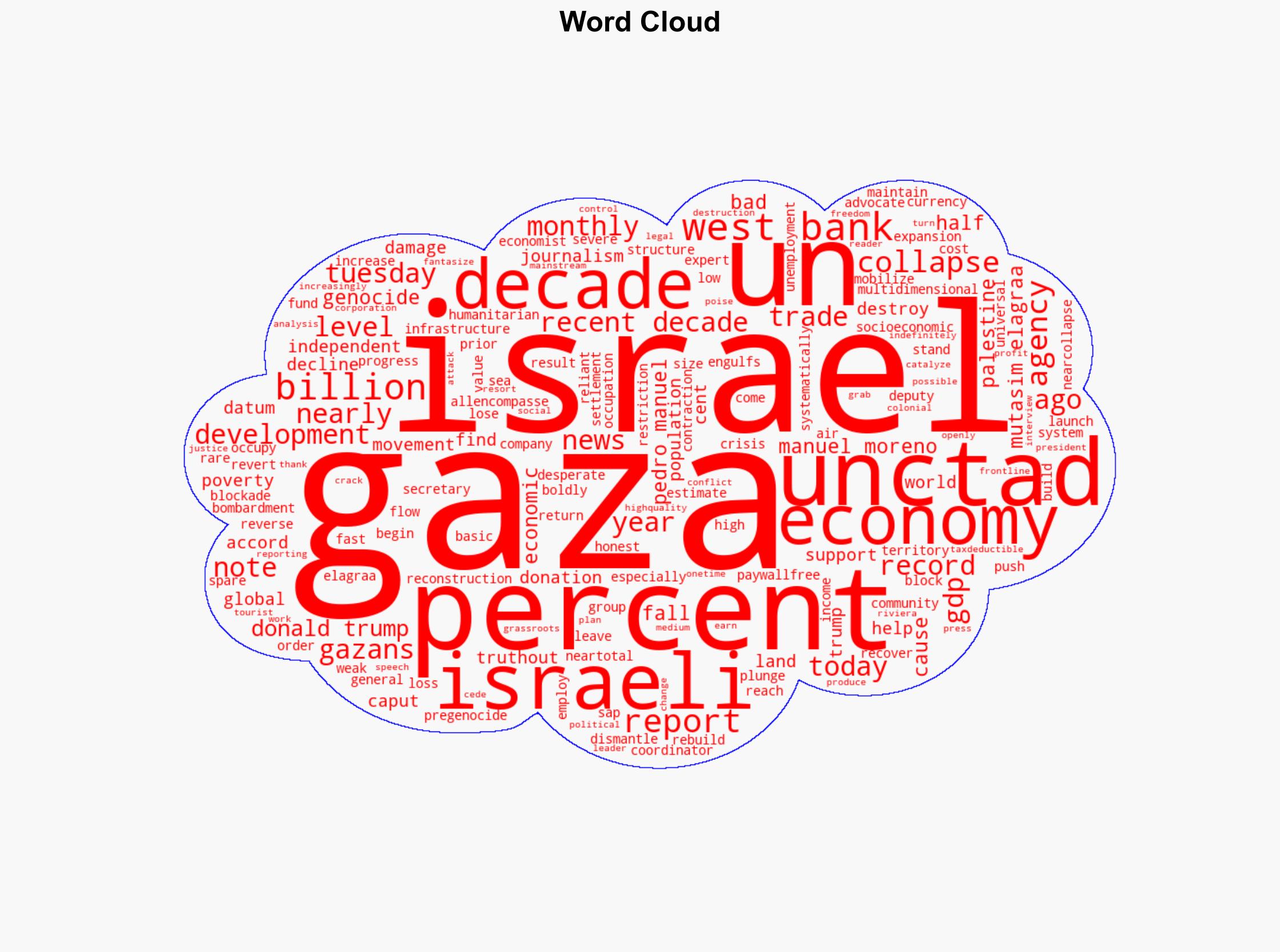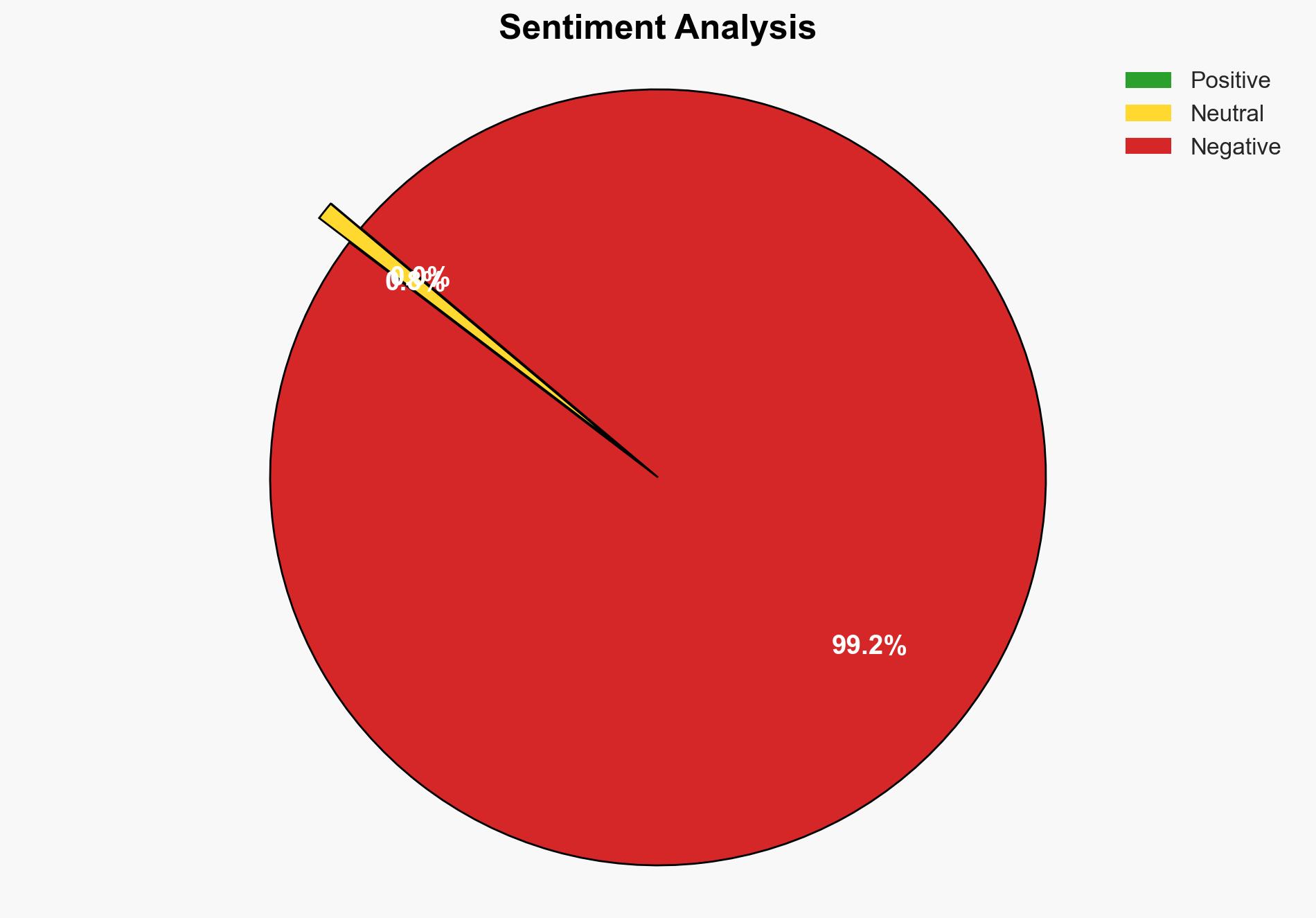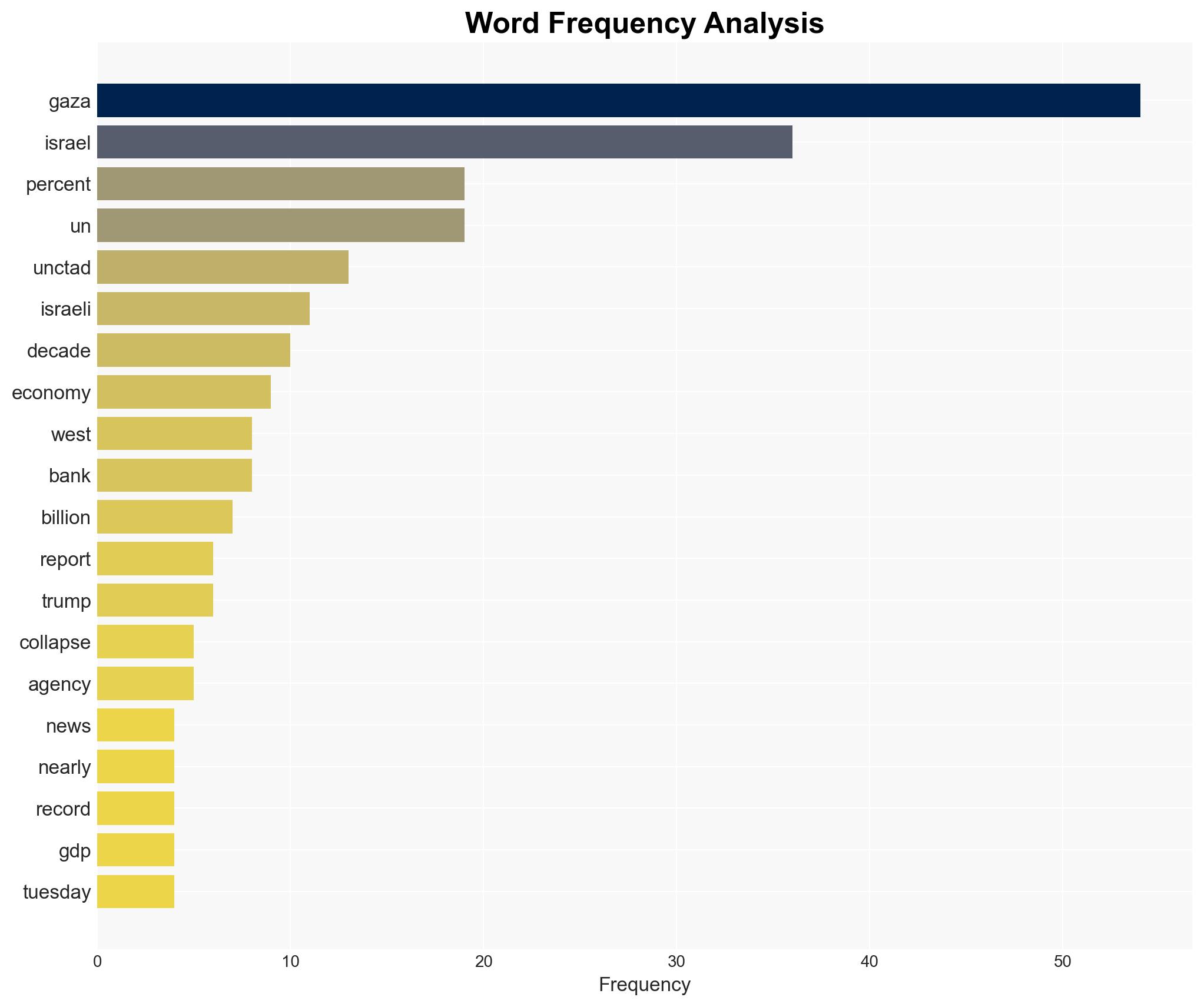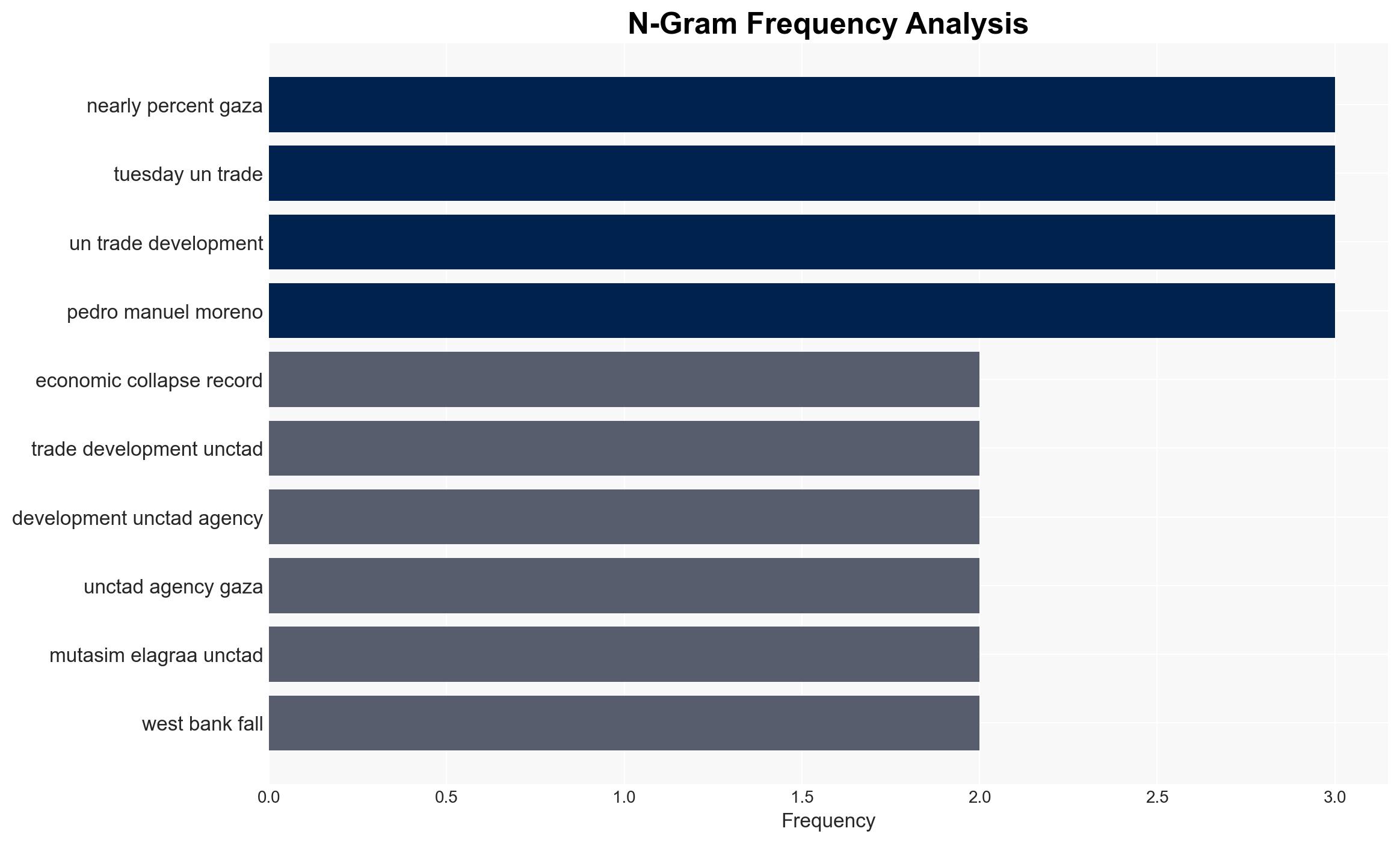Gaza Economy at 13 Percent of Pre-Genocide Level With Worst Collapse on Record
Published on: 2025-11-25
AI-powered OSINT brief from verified open sources. Automated NLP signal extraction with human verification. See our Methodology and Why WorldWideWatchers.
Intelligence Report:
1. BLUF (Bottom Line Up Front)
The Gaza economy is experiencing an unprecedented collapse, currently at 13% of its pre-crisis level. The most supported hypothesis is that the economic devastation is primarily due to the prolonged blockade and recent military actions by Israel. Confidence in this assessment is high, given the corroborative data from UNCTAD and historical context. Recommended actions include international diplomatic engagement to ease the blockade and initiate reconstruction efforts, alongside economic aid to stabilize the region.
2. Competing Hypotheses
Hypothesis 1: The economic collapse in Gaza is primarily due to the Israeli blockade and military actions, which have systematically dismantled infrastructure and restricted economic activity.
Hypothesis 2: The economic downturn is exacerbated by internal governance issues within Gaza, including mismanagement and corruption, which have compounded the effects of external pressures.
Hypothesis 1 is more likely given the extensive documentation of the blockade’s impact and the scale of destruction from military actions. Hypothesis 2, while plausible, lacks sufficient evidence to account for the magnitude of the economic decline independently.
3. Key Assumptions and Red Flags
Assumptions: The data from UNCTAD is accurate and unbiased. The blockade and military actions are the primary drivers of economic collapse.
Red Flags: Potential bias in reporting due to political agendas. Lack of data on internal governance issues in Gaza.
Deception Indicators: Possible underreporting or exaggeration of economic conditions by involved parties to influence international opinion.
4. Implications and Strategic Risks
The continued economic collapse could lead to increased humanitarian crises, further destabilizing the region. Politically, it may fuel extremism and conflict, both locally and internationally. Economically, the region’s instability could impact neighboring economies and global markets. Information warfare could escalate as parties seek to control the narrative.
5. Recommendations and Outlook
- Engage in diplomatic efforts to negotiate easing of the blockade and initiate reconstruction projects.
- Provide economic aid and support for governance reforms within Gaza.
- Best-case scenario: International intervention leads to easing of the blockade and economic recovery efforts, stabilizing the region.
- Worst-case scenario: Continued economic decline leads to increased conflict and humanitarian crises.
- Most-likely scenario: Partial international intervention results in limited economic recovery, with ongoing instability.
6. Key Individuals and Entities
Pedro Manuel Moreno (UNCTAD Deputy Secretary-General), Mutasim Elagraa (UNCTAD Economist and Coordinator for Palestine), Donald Trump (Former U.S. President).
7. Thematic Tags
Structured Analytic Techniques Applied
- Cognitive Bias Stress Test: Expose and correct potential biases in assessments through red-teaming and structured challenge.
- Bayesian Scenario Modeling: Use probabilistic forecasting for conflict trajectories or escalation likelihood.
- Network Influence Mapping: Map relationships between state and non-state actors for impact estimation.
Explore more:
National Security Threats Briefs ·
Daily Summary ·
Support us





